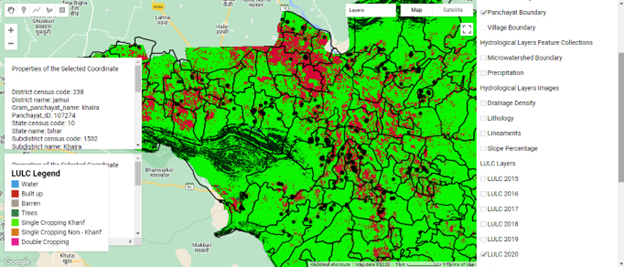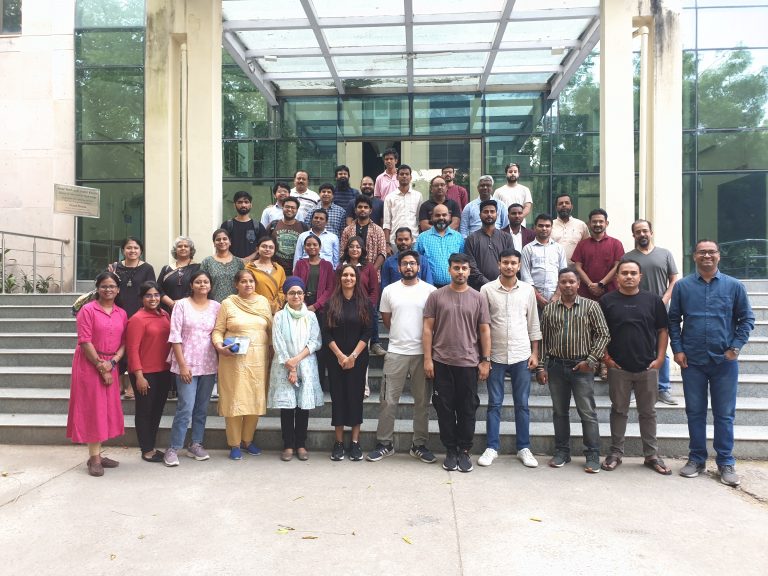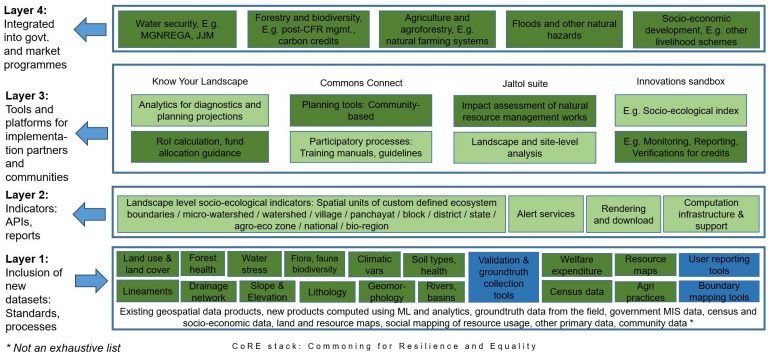In a world where climate change and environmental degradation are becoming increasingly urgent, digital technologies are stepping up to provide effective solutions for community-level adaptation. Our efforts with the CoRE Stack (Commoning for Resilience and Equality) are to build a cutting-edge digital public infrastructure to support communities, organizations, and policymakers to manage natural resources and boost environmental resilience. Over the past six months, the CoRE stack has made significant strides in its development and adoption. Here’s a comprehensive update on how it’s progressing from September 2024 to April 2025. [Detailed pdf]
1. Adoption and Progress of Core Tool
The CoRE stack’s flagship tool, Commons Connect (CC), continues to gain traction among Civil Society Organizations (CSOs) working in rural and tribal areas. These organizations are using the app to enhance community participation in natural resource management, with a focus on sustainable practices like environmental restoration and livelihood improvement for smallholder farmers. By enabling grassroots voices to be heard in the creation of Village Development Plans, Commons Connect ensures that community needs are effectively integrated into local governance processes.
Key Partners and Regions:
- Foundation for Ecological Security (FES) is actively implementing Commons Connect across 20 villages in Bhilwara (Rajasthan) and Angul (Odisha).
- SUPPORT is running the app in 30 villages of Dumka (Jharkhand).
- Utthan is piloting Commons Connect in 10 villages of Dahod and Bhavnagar (Gujarat).
- Gram Vaani is testing the app in 10 villages of Jamui (Bihar).
- Other organizations, such as PRADAN and WRI, are also joining the growing list of partners.
2. Know Your Landscape (KYL) Dashboard: A Deep Dive into Ecological Data
Developed through a tight collaboration between IIT Delhi, CommonsTech Foundation, and WELL Labs, the Know Your Landscape (KYL) dashboard provides access to a range of geospatial layers (including geology, hydrology, climate, land use, and vegetation), and allows organizations to analyze and understand the environmental and social characteristics of a landscape in unprecedented detail. Access the dashboard here: https://explorer.core-stack.org/

3. New Features to Expand Usability
The CoRE stack continues to evolve, with several new features making it more powerful and user-friendly:
- Agroforestry Suitability Tool: In partnership with Say Trees, a new agroforestry assessment tool has been developed. This tool helps organizations evaluate the feasibility of agroforestry interventions based on factors like soil type, rainfall, terrain, and proximity to settlements, and to watch the vegetation history of the site. We will soon be integrating this into Commons Connect, Know Your Landscape, and a visualization dashboard for project managers.

- Offline Mode for Commons Connect: One of the key features recently rolled out is a fully offline functionality of the Commons Connect app. In areas with limited connectivity, users can still operate the app using pre-downloaded maps and satellite images, and collect data offline. This ensures that fieldwork can continue uninterrupted, even in remote locations.
- Multi-Tenancy Functionality: A new update to the CoRE stack’s backend now allows multiple organizations to manage their own projects and users in a custom workspace. This feature is particularly valuable for organizations working on diverse environmental initiatives, such as watershed management, agroforestry, and waterbody rejuvenation, and in multiple locations.

4. Future Developments
The next phase of development for the CoRE stack is already underway, with exciting plans on the horizon:
- User Experience (UX) Overhaul: Building on the feedback received from users, Commons Connect will undergo a UX revamp in Q2 2025-26. The goal is to make the app even more intuitive and efficient for community stewards and fieldworkers.
- Social-Ecological Patterns: A new feature under development is the concept of social-ecological patterns. These patterns will combine data from various geospatial layers to create a comprehensive story of a landscape’s characteristics, challenges, and potential interventions. These insights will help communities and organizations create data-driven action plans for environmental restoration and resource management. This concept emerged from the Landscape Solvability workshop conducted in November 2024 at IIT Delhi.
- Waterbody Rejuvenation Monitoring: A new feature is being developed to track waterbody rejuvenation efforts, including the monitoring of seasonal water availability, cropping intensity, and land use changes in the surrounding area. This is set to support large-scale initiatives such as the Amrit Sarovar Mission.

5. Introducing New Projects and Methodologies
CoRE stack is continuously expanding its capabilities with the introduction of new use-cases and methodologies. An updated version of technical methodology was released earlier this year.
- Advanced Machine Learning Algorithms: We will be integrating maps of tree canopy density, height distribution, and vegetation cover, outlined as part of an earlier post. These new insights will help guide ecological restoration projects.
- Soil Health Maps: Using government data from soil health cards, we are developing pan-India soil health maps. These maps will provide critical information to farmers and restoration projects, helping them select the right crops and improve soil quality.
- Hydrological Modeling: We are refining models to assess groundwater recharge potential and enhance water security efforts across the country. These models will be integrated into Commons Connect to help local communities manage water resources more effectively.
6. Collaborative Efforts and New Partnership
The CoRE stack continues to foster collaboration across multiple sectors. The recent involvement of Viksit Labs and Saarland University in developing AI-powered chatbots for community education on watershed management is an exciting example. These chatbots, powered by large language models (LLMs), will help empower community stewards by making information about water security accessible in local languages. Viksit Labs is one of the winners in the India AI challenge to build chatbots that can improve the technical understanding of field staff and volunteers.
7. Looking Ahead: Scaling and Impact
As the CoRE stack continues to evolve, its impact is set to expand. Future plans include a deeper integration of AI tools, more extensive field validation of new features, and greater participation in policy initiatives informed by data. We are committed to building a robust ecosystem of partners and to continuously enhance the tools to make them an essential resource for communities, CSOs, and governments tackling climate change and environmental degradation.
Stay tuned for more updates and progress on the CoRE stack as we continue to work towards a climate-resilient future!





